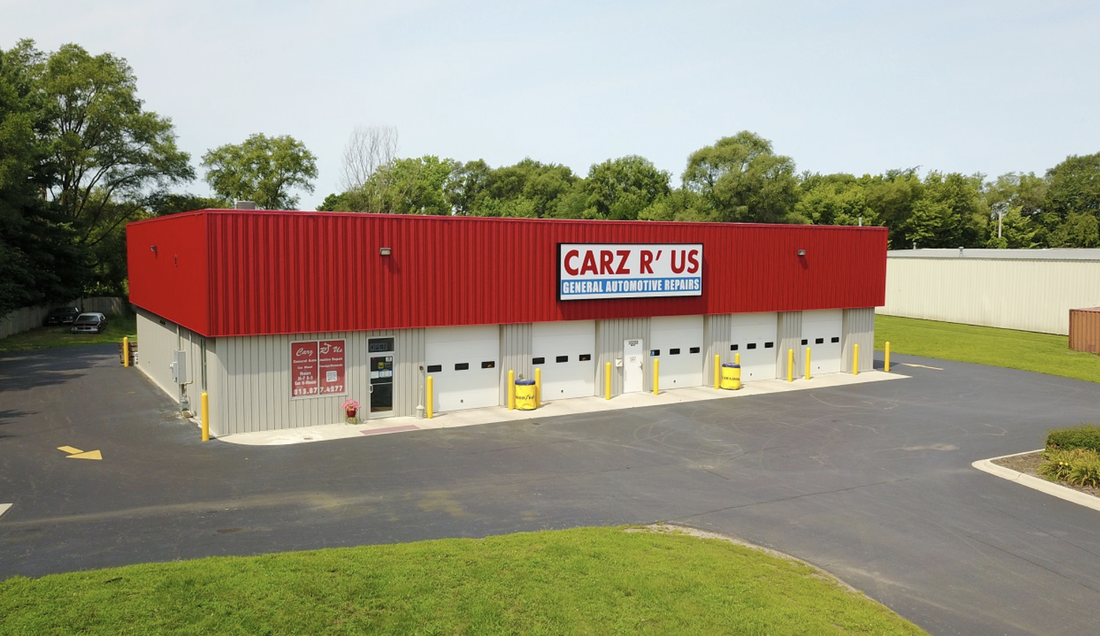What Does It Mean When You See A Flashing Check Engine Light?
by Olive Bennet
Drivers don't get to see a flashing check engine light that often unless there's a looming problem on the car's engine. Since this is a seldom occurrence, not everyone knows what a flashing check engine light means. This article can help you learn the things you need to know about a flashing check engine light.
You might be wondering why your check engine light is flashing. Seeing the check engine light flash is a rare occurrence compared to other car symbols that light up on your dashboard display. The reason might be alarming but there’s nothing to fear as long as you take immediate action upon seeing the warning sign.
There are several causes to why your check engine light might flash. Here’s a guide to help you understand the reason why and what you need to do when you see your check engine light blinking.
You might be wondering why your check engine light is flashing. Seeing the check engine light flash is a rare occurrence compared to other car symbols that light up on your dashboard display. The reason might be alarming but there’s nothing to fear as long as you take immediate action upon seeing the warning sign.
There are several causes to why your check engine light might flash. Here’s a guide to help you understand the reason why and what you need to do when you see your check engine light blinking.
Overview
Whenever you start the car, the check engine light always comes on then turns off within 6 seconds when there’s no problem detected. When something does go wrong, your car’s electronic Engine-Management System (EMS) triggers the check engine light.
The check engine light is a warning symbol that lights up when a malfunction or an error has been detected within your engine component or system management. Usually, you can see 2 variations of warning lights between steady and flashing depending on the issue. A steady check engine light indicates a minor issue while a flashing check engine light indicates a severe issue.
The last thing you might want to see on your car’s dashboard display is a blinking check engine light.
You should never ignore a flashing signal as it indicates a severe issue with your car’s engine. The experience might be distressing for you, but irreversible damage can still be prevented. Avoid driving a longer distance if your check engine light is flashing because it can do more damage to your vehicle. In extreme cases, you risk yourself and other passengers in your car, and others on the road to a potential danger such as fire. Pulling over and calling a professional is the smartest response you can do when faced with this kind of incident.
Whenever you start the car, the check engine light always comes on then turns off within 6 seconds when there’s no problem detected. When something does go wrong, your car’s electronic Engine-Management System (EMS) triggers the check engine light.
The check engine light is a warning symbol that lights up when a malfunction or an error has been detected within your engine component or system management. Usually, you can see 2 variations of warning lights between steady and flashing depending on the issue. A steady check engine light indicates a minor issue while a flashing check engine light indicates a severe issue.
The last thing you might want to see on your car’s dashboard display is a blinking check engine light.
You should never ignore a flashing signal as it indicates a severe issue with your car’s engine. The experience might be distressing for you, but irreversible damage can still be prevented. Avoid driving a longer distance if your check engine light is flashing because it can do more damage to your vehicle. In extreme cases, you risk yourself and other passengers in your car, and others on the road to a potential danger such as fire. Pulling over and calling a professional is the smartest response you can do when faced with this kind of incident.
Why Your Engine is Misfiring?
Here are three commonly known reasons why your engine misfires:
There are some of the many issues that can cause an engine misfire. It is recommended to keep your engine in check by having an OBD reading. When there are existing issues, this reading helps identify the location of the problem or which cylinder is causing a misfiring through the use of the generated fault codes. A poorly executed engine modification and tuning can affect the performance of the engine and its components. There are plenty of state-of-the-art automobile tuning tools and tuning accessories that can help you achieve the best balance in performance and emissions.
What To Do When Your Check Engine Light is Flashing?
As mentioned above, when your check engine light is flashing, the smartest thing to do is to pull over as soon as possible and contact your nearest mechanic. Although, it is technically possible to continue driving but only for a short distance when the check engine light is steady. Don’t risk driving when the check engine light is flashing as it can lead to severe damages which you’ll end up paying expensive repair costs.
Keep in mind not to panic when you see your check engine light blinking. Play it safe and let a professional mechanic handle the diagnostics and repairs
Source: ArticlesFactory.com
Here are three commonly known reasons why your engine misfires:
- Ignition Problems- This is the most common cause of an engine misfire. Spark plugs and ignition coils are most likely to cause the misfire as these parts do wear over time and fail. They cause problems such as improper ignition timing and plugs failing to provide a spark to the cylinders. Defects in the ignition system are the least expensive to repair when the engine misfires.
- Fuel Mixture Issues - A problem in fuel mixture can cause your engine to run too lean or too rich. The engine runs leans when the air-to-fuel mixture is too light. When there’s a higher concentration of the air-to-fuel mixture, the fuel in the ignition chamber is being ignited with too much air or too little fuel which makes your engine run on less fuel than it needs. This may cause problems such as trouble in starting your car, sluggish acceleration, and even backfiring. The engine is considered to be running rich when there’s too much fuel and not enough air. Rich fuel mixture tends to generate more power because of the excess fuel. It can degrade the catalytic converter by clogging it with sediments of the burned excess fuel. Running too rich in fuel mixture may cause a strong smell like a rotten egg smell from the exhaust, bad fuel efficiency, and vibration that can be felt when your car is idle.
- Low Compression - Low compression is another cause of an engine misfire due to the low power and slow acceleration. A low compression occurs when the right amount of pressure isn’t generated in the cylinders. A blown head gasket creates this issue as it leads the gas to escape from the cylinder due to the gap between the cylinder and head. An issue with the piston that powers your car’s movement can also be the source of losing compression. When your engine runs too hot, it could burn holes in the pistons which makes them a spot for the gas to leak out.
There are some of the many issues that can cause an engine misfire. It is recommended to keep your engine in check by having an OBD reading. When there are existing issues, this reading helps identify the location of the problem or which cylinder is causing a misfiring through the use of the generated fault codes. A poorly executed engine modification and tuning can affect the performance of the engine and its components. There are plenty of state-of-the-art automobile tuning tools and tuning accessories that can help you achieve the best balance in performance and emissions.
What To Do When Your Check Engine Light is Flashing?
As mentioned above, when your check engine light is flashing, the smartest thing to do is to pull over as soon as possible and contact your nearest mechanic. Although, it is technically possible to continue driving but only for a short distance when the check engine light is steady. Don’t risk driving when the check engine light is flashing as it can lead to severe damages which you’ll end up paying expensive repair costs.
Keep in mind not to panic when you see your check engine light blinking. Play it safe and let a professional mechanic handle the diagnostics and repairs
Source: ArticlesFactory.com
|
|
|










